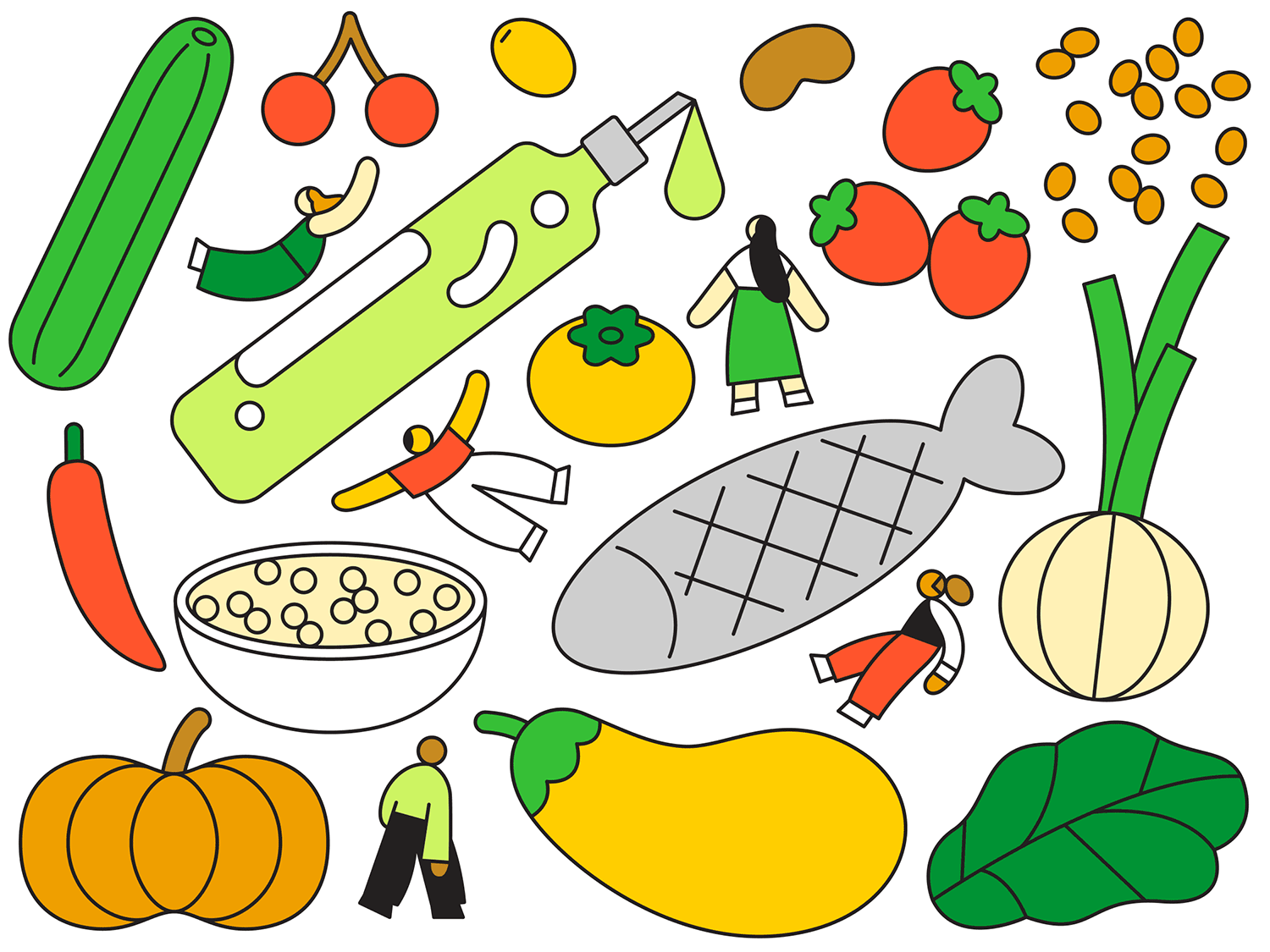Anyone who decides they want to eat a healthy diet and lose weight can choose from countless programs promising effortless ways to shed the pounds.
But before embarking on a weight-loss plan that could involve significant changes to your eating habits, U of T nutrition experts advise asking yourself an important question: do you actually need to lose weight? Is it advisable or necessary from a health perspective? Or are you feeling motivated by unrealistic expectations about what a healthy body looks like?
The nutritionists we spoke with say people tend to focus on reducing the quantity of food they eat (or calories they ingest) rather than improving the quality of what they eat. That emphasis is misguided.
“We need to stop promoting weight and the body mass index – which is totally bogus – as measures of absolute health,” says Nishta Saxena (MSc 2007), a registered dietitian and the founder of Vibrant Nutrition in Toronto. “There are many people in different body shapes and sizes who are metabolically, physiologically and physically healthy. Promoting weight loss alone creates stress, reinforces weight-focused bias in science and health care and has roots in racism and classicism, not health.”

Many popular weight-loss diets, such as the Atkins, ketogenic or paleo, advise us to stop eating – or greatly cut back on – certain foods we like. The ketogenic diet requires the virtual elimination of most carbs. This kind of restriction can be problematic for a few reasons. First, eliminating whole categories of food is extremely difficult. Most people give up after a month or two. Second, depending on what foods you stop eating, micronutrient deficiencies can develop. Third, eating is one of life’s pleasures. Placing a lot of restrictions on how or when we eat can negatively affect mental health.
So, how do you select an eating plan that’s right for you, helps you achieve a sustainable weight, doesn’t compromise your nutrition or other aspects of your health, and keeps you happy? We posed this question to Saxena and John Sievenpiper, an associate professor in U of T’s department of medicine and the nutritional medical education co-ordinator in the department of nutritional sciences at the Temerty Faculty of Medicine.
They suggested the following principles:
- Think carefully about what will work for you. Look for a nutritious diet that aligns with your food preferences and health goals. If you are seeking to lose weight, how willing are you to count calories or carbs, or to weigh everything you eat? These considerations are important when it comes to the number-one factor determining a diet’s success: adherence (see below).
- Can you stick with the diet over the long term? If weight loss is a goal, experts advise against trying to lose a lot in a brief time, since you risk gaining it back when the diet ends. Proceed gradually. Losing even one pound a month adds up. “We need to reorient ourselves to thinking more about the quality of our diet,” says Sievenpiper, rather than weight loss. To avoid “yo-yo” dieting, where you lose weight while “on a diet” then gain it back when the diet ends, find a healthy eating plan that keeps you at a sustainable weight over the long term.
- Choose plants if you can. There is good scientific evidence for the health advantages of a plant-based diet. No matter which dietary plan you follow, try to eat more plant-based foods – particularly proteins.
- Consider seeking professional advice. A health provider can help you choose a dietary plan tailored to your individual medical profile, accounting for any chronic diseases or conditions you may have.
- Enjoy your food. Diets can change how we eat, but we shouldn’t sacrifice the social aspect of sharing food, Saxena says. “The past four years have shown us that when we remove community and social connection, mental health plummets. No diet is worth that.”

We asked Saxena and Sievenpiper about the nutritional science underpinning several popular eating and weight-loss plans, and, for proven health benefits and for ease of adherence, one stood out above the others: the Mediterranean diet. 1
We’re not talking about pizza and pasta for dinner every night. The healthy Mediterranean diet is high in olive oil, fruits, vegetables, whole grains and cereals, legumes, and nuts and seeds. Moderate consumption of fish, dairy (some cheese and yogurt), eggs and chicken is permitted. Just over half of daily calories should come from carbohydrates, about 30 per cent from healthy fats and 15 per cent from proteins. The use of extra virgin olive oil as the main source of fat appears to be a key health benefit. Red wine has traditionally been permitted, but this has recently been questioned.

Scientists have studied the diet extensively and found that it helps prevent several diseases, including certain cancers. It can help with blood pressure and blood sugar management – even mental health. And, according to Sievenpiper, it has “hands down the best evidence for cardiovascular benefit.” As well, it’s not a highly restrictive diet, which means that most people can follow it with little or no difficulty. It’s also palatable and the foods are accessible in many places. “You don’t have to live in the Mediterranean basin to enjoy that diet,” says Sievenpiper.
Although the diet downplays foods that are associated with weight gain, such as higher-fat dairy, red meat and highly processed items, you’ll need to control portion size if weight loss is a goal. As Saxena notes: “If you are a 57-year-old female and you are eating a 3,200-calorie-a-day Mediterranean diet, you’re probably not going to stimulate weight loss.”
In terms of nutrition and accessibility, Saxena has only positive things to say. “There’s a huge amount of variety in how you can prepare your food and snacks. It’s easy to enjoy with lots of different people, and it works for children, pregnant women, older adults. It’s an excellent dietary pattern.”




One Response to “ You’ve Decided You Want to Eat Better. Now What? ”
I was shocked by my recent diagnosis of stage 1 breast cancer, which quickly developed into stage 2. I have eaten a combined high fibre and Mediterranean style diet for more than 40 years -- since my UTSC days. My family on both sides has no history of breast cancer. I am the first in five generations to contract it. I have had two partial mastectomy surgeries and a lymph node biopsy; next comes chemotherapy. I am in such overall good health that I am going to negotiate my schedule for chemo to every two weeks (instead of three) at a 75 per cent dosage so I will finish the complete cycle in just under four months instead of nearly five. I really enjoy food, and the high fibre, Mediterranean eating plan has been easy to follow. I highly recommend it. I am also active, as I walk, figure skate and swim as often as possible.